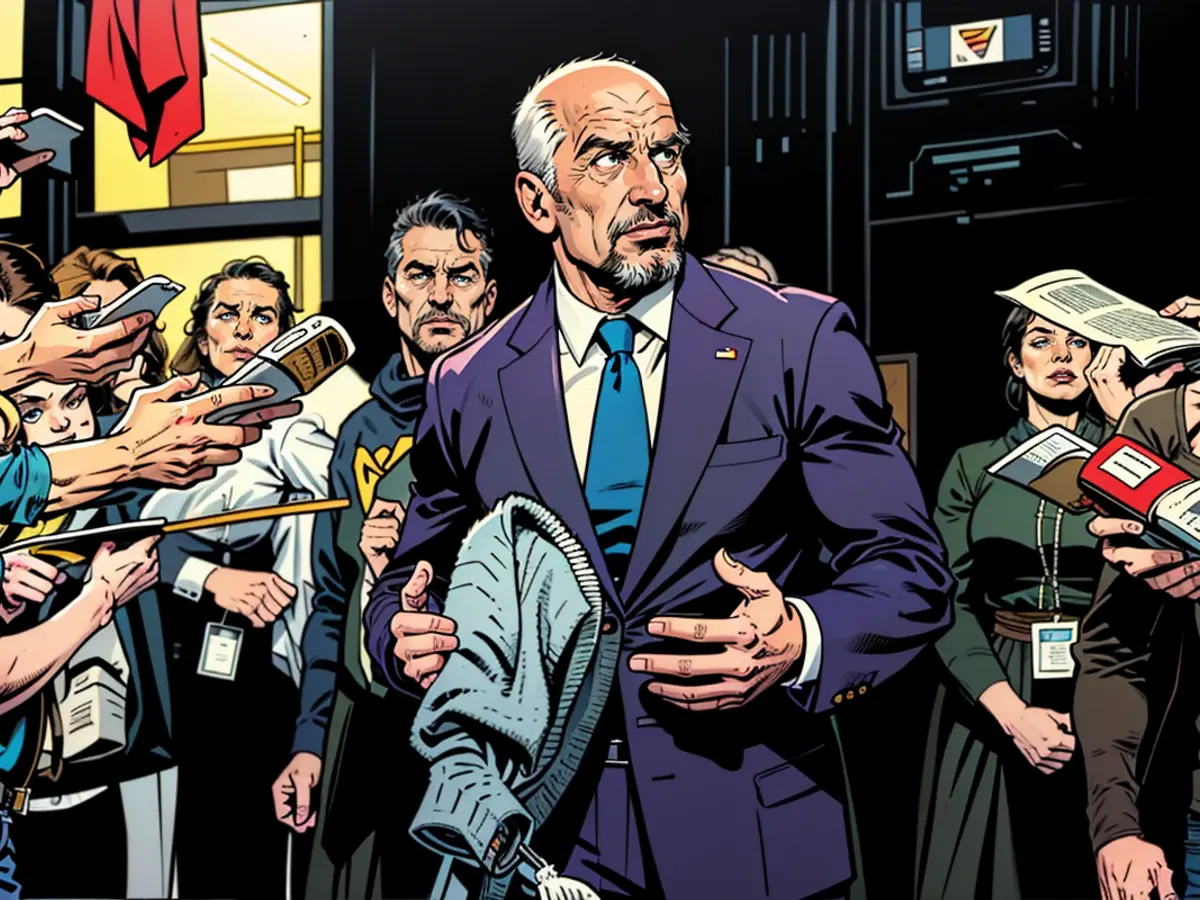EU extraordinary meeting: backing for von der Leyen - disagreement over other positions
"Currently, there's no deal in the works," Michel acknowledged, stepping down from his post as Council President's role. However, it appears that Ursula von der Leyen has a smooth road ahead: Croatian Prime Minister Andrej Plenkovic hasn't heard any naysayers regarding her candidacy. Notably, several heads of state and government have recognized her past five years of solid work, some of whom hail from political camps other than hers.
While von der Leyen stands a chance for another term, the role of EU Council President has been a hot topic of debate. The Social Democrats sought former Portuguese Prime Minister António Costa for the position. Reportedly, conservative leaders are now eyeing the role for themselves, at least for the initial half of the five-year term.
The European People's Party, with the CDU and CSU, emerged as the most powerful force in the recent European elections. The Social Democrats placed second, while the Liberals took a hit and fell to third place.
Apart from Josep Borrell's succession, the summit discussions included EU High Representative Borrell's succession. Estonian Prime Minister Kaja Kallas from the Liberal camp was in the running for this. Known as a vocal supporter of Ukraine, she's the frontrunner for the role.
Federal Chancellor Olaf Scholz (SPD) had high hopes for a swift agreement ahead of the summit. Some diplomats even guessed that the summit would end prior to the 9 PM kick-off of the Austria vs France football match at the European Championship. Unfortunately, this deadline was missed. As France secured a 1:0 victory in Düsseldorf, the 27 EU heads of state and government were still seated at the table.
Mark Rutte, the outgoing Dutch Prime Minister, expressed optimism for an agreement in the coming week. He termed the negotiations as not a "lottery," unlike those post the last European elections in 2019. Back then, French President Emmanuel Macron surprised everyone by proposing von der Leyen for the Commission presidency.
Rutte, with support from the USA, Germany, and 27 other alliance countries, aspires to become the successor of Jens Stoltenberg as NATO Secretary General. However, Orban is currently standing in opposition, as Rutte had criticized human rights violations in Hungary. Following their summit meeting on the sidelines, Rutte expressed a cautious optimism. Orban did not demand an apology.
The EU summit was delayed by approximately two hours, as six heads of state and government were initially trying to reach an agreement. Key figures involved included Scholz, the Polish Prime Minister Donald Tusk, and Macron.
Following this, the heads of state and government engaged in discussions with Ursula von der Leyen and EU Parliament President Roberta Metsola about the strategic plan for the coming years. Metsola will continue leading the European Parliament for another two and a half years. The Conservatives can also put forward the 45-year-old Maltese as the next EU Council President, according to diplomats."
Read also:
- Despite Michel's acknowledgment of no deal in progress, Plenkovic has not detected any objections towards von der Leyen's candidacy.
- The Social Democrats aimed for Costa as the EU Council President, but conservative leaders are now considering the role for themselves during the initial half of the term.
- With the CDU and CSU, the European People's Party emerged as the dominant force in the recent European elections.
- Known for her vocal support of Ukraine, Kallas from the Liberal camp is the frontrunner for Borrell's succession as EU High Representative.
- Scholz anticipated a swift agreement ahead of the summit, but the 9 PM deadline for the Austria vs France football match was not met.
- Rutte, backed by the USA, Germany, and 27 other countries, strives to succeed Jens Stoltenberg as NATO Secretary General, but Orban presents an opposition due to human rights concerns.
- The EU summit was delayed for two hours as six heads of state and government attempted to reach an agreement, involving Scholz, Tusk, and Macron.
- After the summit, the heads of state and government conversed with von der Leyen and Metsola about the strategic plan for the upcoming years.
- An EU special summit was required to address ongoing disputes with France, including Pascal Sotto's farming practices and the Digital Services Act.







